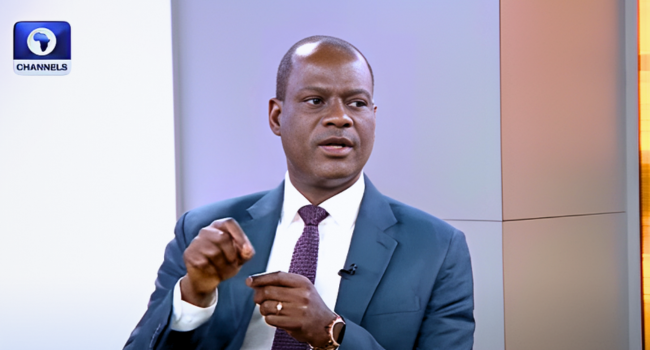High interest rates set by the Central Bank of Nigeria (CBN) are worsening inflation and compounding economic challenges for Nigerians, according to Taiwo Oyedele, Chairman of the Presidential Fiscal Policy and Tax Reforms Committee.
Speaking at a recent forum organised by PwC and BusinessDay, Oyedele criticised the CBN’s Monetary Policy Rate (MPR) hikes as counterproductive. “The MPR, as far as I’m concerned, was a factor pushing inflation up, not bringing it down,” he said, challenging the widespread belief that higher interest rates help to control inflation.
The CBN raised the MPR multiple times in 2023, bringing it to 18.5% in a bid to curb rising prices. However, Oyedele argued that this approach has had unintended consequences, including skyrocketing borrowing costs for businesses. Many companies now face interest rates as high as 35–40%, forcing them to increase the prices of goods and services to recover costs. This, in turn, has further fueled inflation.
Naira Undervalued Amid FX Challenges
A critical issue exacerbating the economic strain is Nigeria’s undervalued currency. Oyedele expressed concern over the naira’s exchange rate, which has hovered around N1,500 to the dollar in some parallel markets. “I do not think that N1,500/$ is the fair value of the naira. I think the naira is undervalued,” he stated.
He suggested that a transparent and efficient foreign exchange market could help stabilise the naira, increase liquidity, and restore confidence among investors and businesses. According to Oyedele, addressing the root causes of foreign exchange (FX) volatility is essential for economic recovery.
Manufacturers Struggle with Unsold Goods
The effects of high interest rates and low consumer purchasing power are particularly evident in Nigeria’s manufacturing sector. Oyedele revealed that manufacturers are grappling with over N1 trillion worth of unsold inventories. This situation highlights a growing disconnect between production and consumer demand, driven by inflation and dwindling disposable incomes.
“The focus should be on policies that address structural issues rather than relying on blanket MPR adjustments,” Oyedele advised. He called for targeted reforms, including efficient tax systems, support for local production, and a reduction in dependency on imports.
The Role of Fiscal Discipline
Beyond monetary policy, Oyedele emphasised the importance of fiscal discipline. He pointed out that excessive government spending, especially when funded through money printing, can exacerbate inflation.
“If government spending is from sustainable sources like taxes or resource revenues and not from printing new money, the impact on inflation is muted,” Oyedele explained. He praised the example of Nordic countries, where robust fiscal policies and transparency have contributed to economic stability and growth.
Hope for the Future
Despite the current challenges, Oyedele remains optimistic about Nigeria’s economic prospects. He predicted that inflationary pressures could ease by 2025, driven by fewer external shocks and better policy choices. However, he warned that this optimism would only materialise if policymakers embraced structural reforms and transparent governance.
The economist urged the government to focus on reducing FX volatility, supporting local industries, and ensuring fiscal accountability. He argued that a more stable and transparent economic environment would not only help businesses thrive but also restore public confidence in Nigeria’s economic management.
Context and Background
The Central Bank of Nigeria’s MPR hikes were part of a broader effort to tackle inflation, which surged to over 20% in 2023. Economists have debated the effectiveness of this approach, with critics like Oyedele arguing that structural issues—such as poor infrastructure, inefficient taxation, and a weak manufacturing base—are the primary drivers of inflation.
The naira’s depreciation has been another major concern, reflecting a shortage of foreign currency reserves and a reliance on imports for basic goods. Many businesses have struggled to access foreign exchange, further driving up costs.
Experts have long advocated for reforms in the FX market to enhance transparency and liquidity. Some also point to the need for better collaboration between fiscal and monetary authorities to address the economy’s structural challenges.

